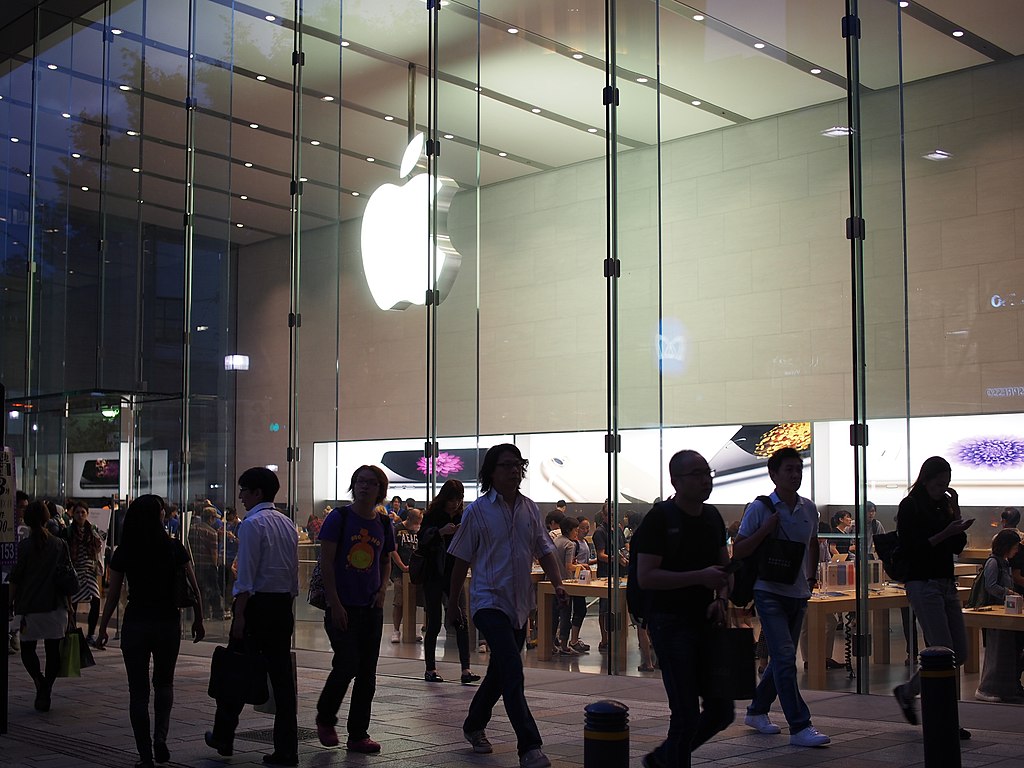Proposed U.S. tariffs of 10-25% on imported PCs and components could significantly impact manufacturers like Dell (NYSE:DELL), HP (NYSE:HPQ), and Apple (NASDAQ:AAPL), according to Bank of America (BofA). These tariffs may trigger higher PC prices, supply chain instability, and long-term shifts in manufacturing.
BofA analysts warn that PC makers will likely pass increased costs onto consumers, raising prices by at least 10% in the U.S. or spreading smaller hikes globally. Acer (TW:2353) has already announced price increases for its U.S. models. Businesses may delay upgrades, while lower-cost PCs could see reduced demand as budget-conscious buyers react to higher prices.
Despite efforts to relocate production, China remains the dominant hub for PC assembly and components. Many manufacturers depend on Taiwanese Original Design Manufacturers (ODMs) such as Quanta, Compal, Wistron, and Inventec, which still operate largely in China. Even with final assembly shifting to Mexico, Thailand, or Vietnam, critical parts continue to come from China, keeping costs elevated.
To mitigate tariffs, HP and Dell have expanded laptop production in Mexico and Thailand, while Apple has moved some MacBook production to Vietnam. However, BofA notes that shifting production is expensive and takes years to scale. Future tariffs on Mexican imports could further complicate supply chains.
In the short term, PC makers may stockpile inventory, lobby for tariff exemptions, or adjust product launches. Given the industry's slim profit margins, absorbing these costs is unsustainable, making price hikes inevitable. While companies are working to diversify supply chains to reduce geopolitical risks, this transition adds complexity and higher costs.



 Weight-Loss Drug Ads Take Over the Super Bowl as Pharma Embraces Direct-to-Consumer Marketing
Weight-Loss Drug Ads Take Over the Super Bowl as Pharma Embraces Direct-to-Consumer Marketing  Missouri Judge Dismisses Lawsuit Challenging Starbucks’ Diversity and Inclusion Policies
Missouri Judge Dismisses Lawsuit Challenging Starbucks’ Diversity and Inclusion Policies  OpenAI Expands Enterprise AI Strategy With Major Hiring Push Ahead of New Business Offering
OpenAI Expands Enterprise AI Strategy With Major Hiring Push Ahead of New Business Offering  Nvidia CEO Jensen Huang Says AI Investment Boom Is Just Beginning as NVDA Shares Surge
Nvidia CEO Jensen Huang Says AI Investment Boom Is Just Beginning as NVDA Shares Surge  SoftBank and Intel Partner to Develop Next-Generation Memory Chips for AI Data Centers
SoftBank and Intel Partner to Develop Next-Generation Memory Chips for AI Data Centers  Baidu Approves $5 Billion Share Buyback and Plans First-Ever Dividend in 2026
Baidu Approves $5 Billion Share Buyback and Plans First-Ever Dividend in 2026  Washington Post Publisher Will Lewis Steps Down After Layoffs
Washington Post Publisher Will Lewis Steps Down After Layoffs  Sony Q3 Profit Jumps on Gaming and Image Sensors, Full-Year Outlook Raised
Sony Q3 Profit Jumps on Gaming and Image Sensors, Full-Year Outlook Raised  SpaceX Prioritizes Moon Mission Before Mars as Starship Development Accelerates
SpaceX Prioritizes Moon Mission Before Mars as Starship Development Accelerates  Tencent Shares Slide After WeChat Restricts YuanBao AI Promotional Links
Tencent Shares Slide After WeChat Restricts YuanBao AI Promotional Links  TSMC Eyes 3nm Chip Production in Japan with $17 Billion Kumamoto Investment
TSMC Eyes 3nm Chip Production in Japan with $17 Billion Kumamoto Investment  Uber Ordered to Pay $8.5 Million in Bellwether Sexual Assault Lawsuit
Uber Ordered to Pay $8.5 Million in Bellwether Sexual Assault Lawsuit  AMD Shares Slide Despite Earnings Beat as Cautious Revenue Outlook Weighs on Stock
AMD Shares Slide Despite Earnings Beat as Cautious Revenue Outlook Weighs on Stock  SpaceX Pushes for Early Stock Index Inclusion Ahead of Potential Record-Breaking IPO
SpaceX Pushes for Early Stock Index Inclusion Ahead of Potential Record-Breaking IPO  CK Hutchison Launches Arbitration After Panama Court Revokes Canal Port Licences
CK Hutchison Launches Arbitration After Panama Court Revokes Canal Port Licences  Nasdaq Proposes Fast-Track Rule to Accelerate Index Inclusion for Major New Listings
Nasdaq Proposes Fast-Track Rule to Accelerate Index Inclusion for Major New Listings 































